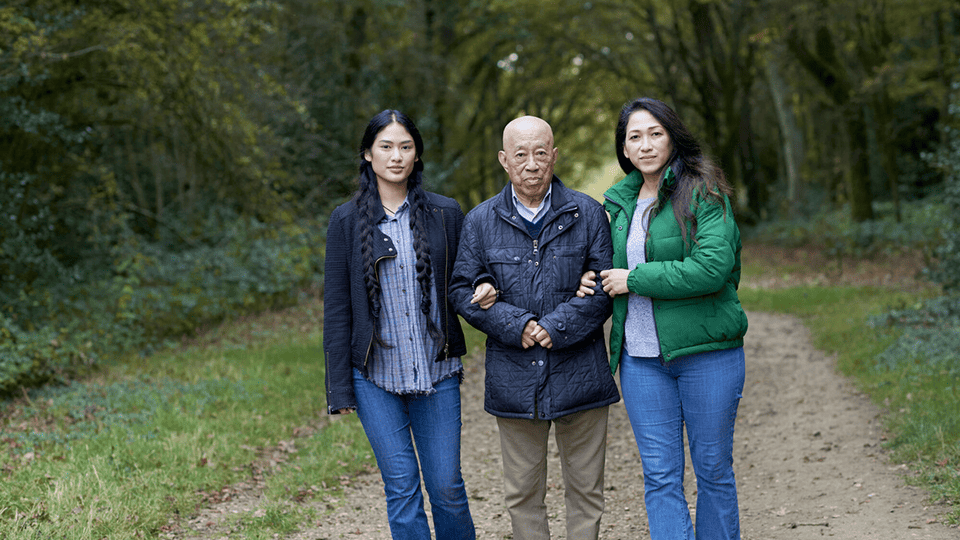
Specialist dementia support for the LGBTQ+ community
Our newly created Consultant Admiral Nurse service for the LGBTQ+ community is an exciting step for Dementia UK.

Admiral Nurse Vic Lyons offers tips for handling difficult conversations that family members have about how their loved one should be cared for.
Sometimes family members have different opinions about how their loved one should be cared for. This may make it hard to reach a joint decision about the best care options for the person with dementia – now or in the future. Making important decisions about the person’s care might involve having difficult conversations with other family members. With the help of dementia specialist Admiral Nurse Vic Lyons, we have put together seven tips to help you have these tricky conversations.
Although you do not want to script the conversation, it is important to think about the objective beforehand. Consider the key points that you would like to cover – you may even find it helpful to make a list to help the conversation stay focused.
If the conversation starts to go off track, try to steer it back to the objective.
Let the other people involved know in advance that you need to have the conversation and the topic you would like to discuss. This will give them some time to think and reflect on the issue beforehand, and you may be more likely to reach a positive outcome.
It is important to think about where and when the conversation will take place. Choosing a neutral location for a difficult conversation may make each person feel more comfortable. This could mean choosing a public place to talk or going for a walk.
Also, make sure you schedule enough time to have an in-depth conversation without any unnecessary distractions.
Encourage each other to talk about how you are feeling about the issue at hand so you can understand and support each other better. Asking open-ended questions may encourage the other people in the conversation to be more honest.
Some examples of open questions include:
Often in conversations we appear to listen to each other but might just be waiting for our turn to talk and express our views.
Try to really listen to what each person is saying and to see the situation from their point of view. Putting yourself in the other person’s shoes will help you gain insight into their perspective. This will also help build empathy and understanding.
During difficult conversations, you may feel a range of emotions such as fear, anger, sadness, distress, bewilderment, shock or grief.
If you feel yourself becoming emotional during a conversation, it is important that you recognise this and let the other person know how you are feeling. It can also help to acknowledge when you can see somebody else in the conversation is becoming emotional.
You may suggest ending the conversation and coming back to it when you are all feeling more at ease.
Towards the end of the conversation, repeat the key points and actions back to each other to ensure everybody has understood and is on the same page.
Rather than making instant decisions, you may want to take time to think about the conversation and agree to get together again later to agree on any actions. If this is the case, set a future date to reconvene.
If you’re struggling to work things out, our dementia specialist Admiral Nurses can help you come to a decision about how to care for the person with dementia that suits the whole family. Please call our Helpline on 0800 888 6678 to speak to a nurse, email helpline@dementiauk.org or book a virtual clinic appointment.

Our newly created Consultant Admiral Nurse service for the LGBTQ+ community is an exciting step for Dementia UK.

Hannah Gardner has recently been appointed as Consultant Admiral Nurse for Children and Young People.

Admiral Nurse Lizzie Harrison provides support strategies for young people caring for someone with dementia.